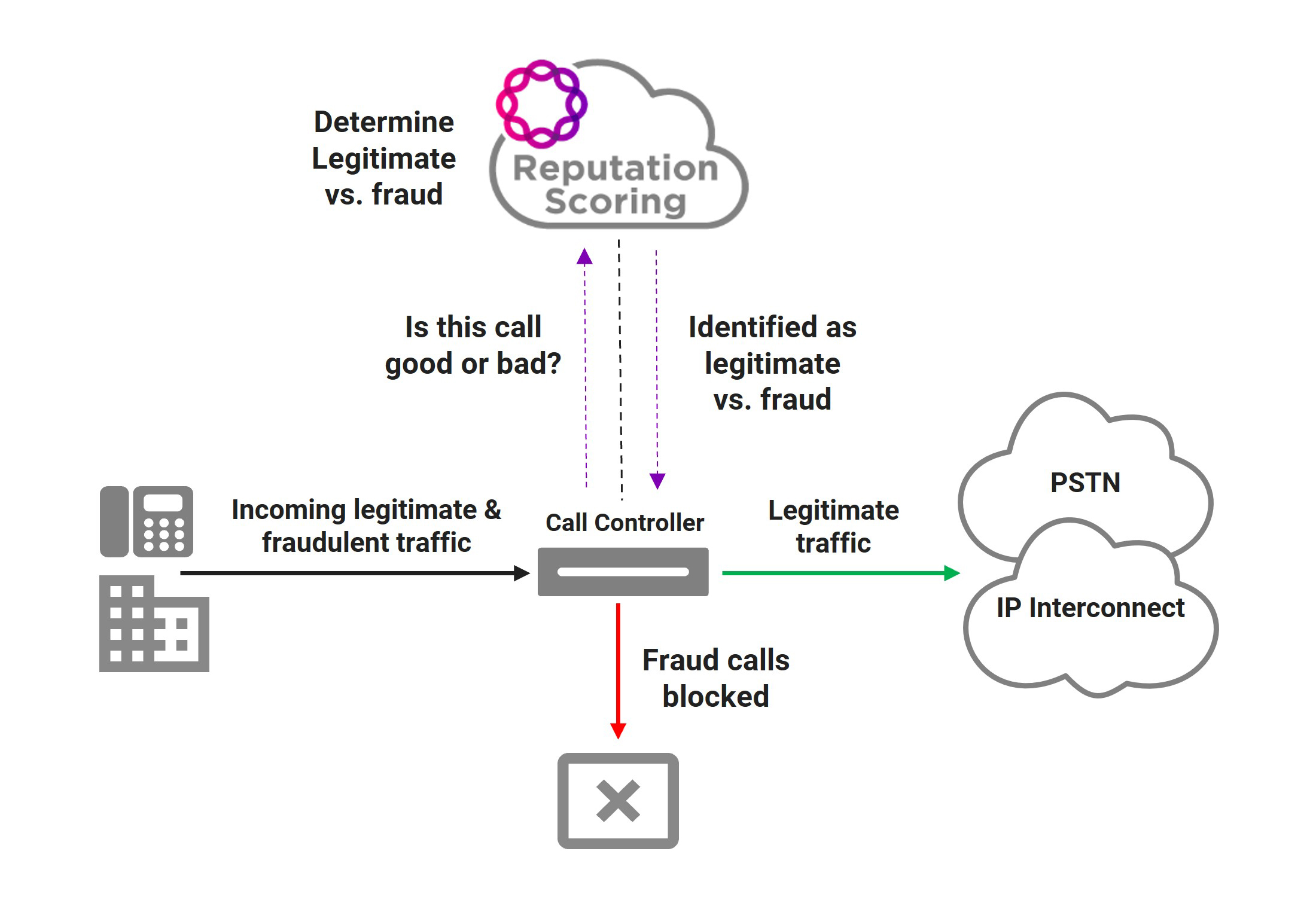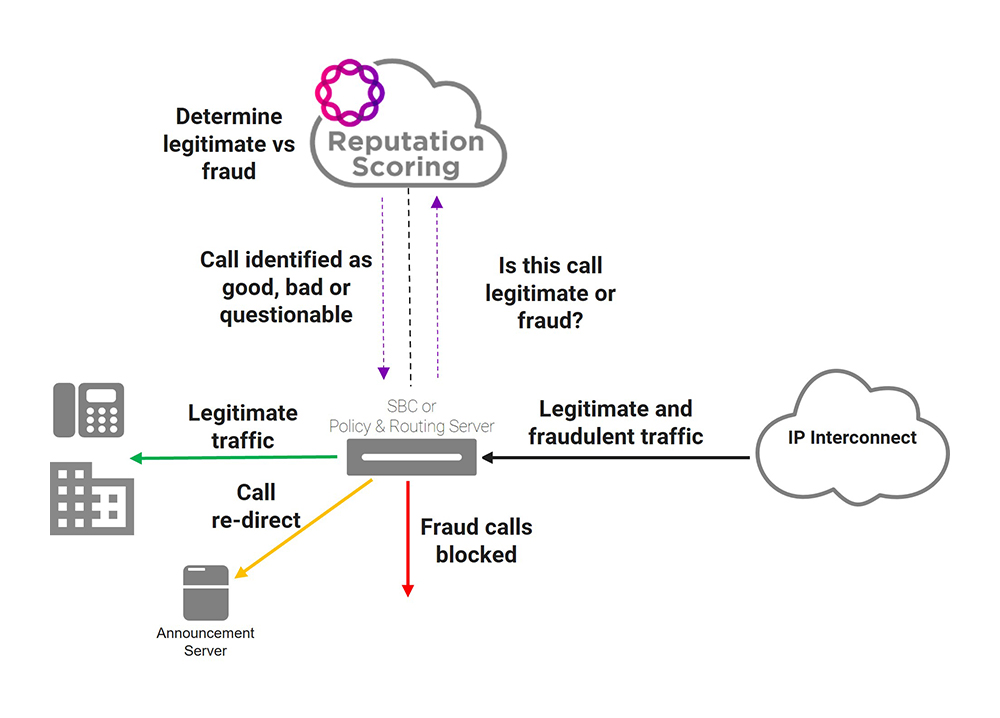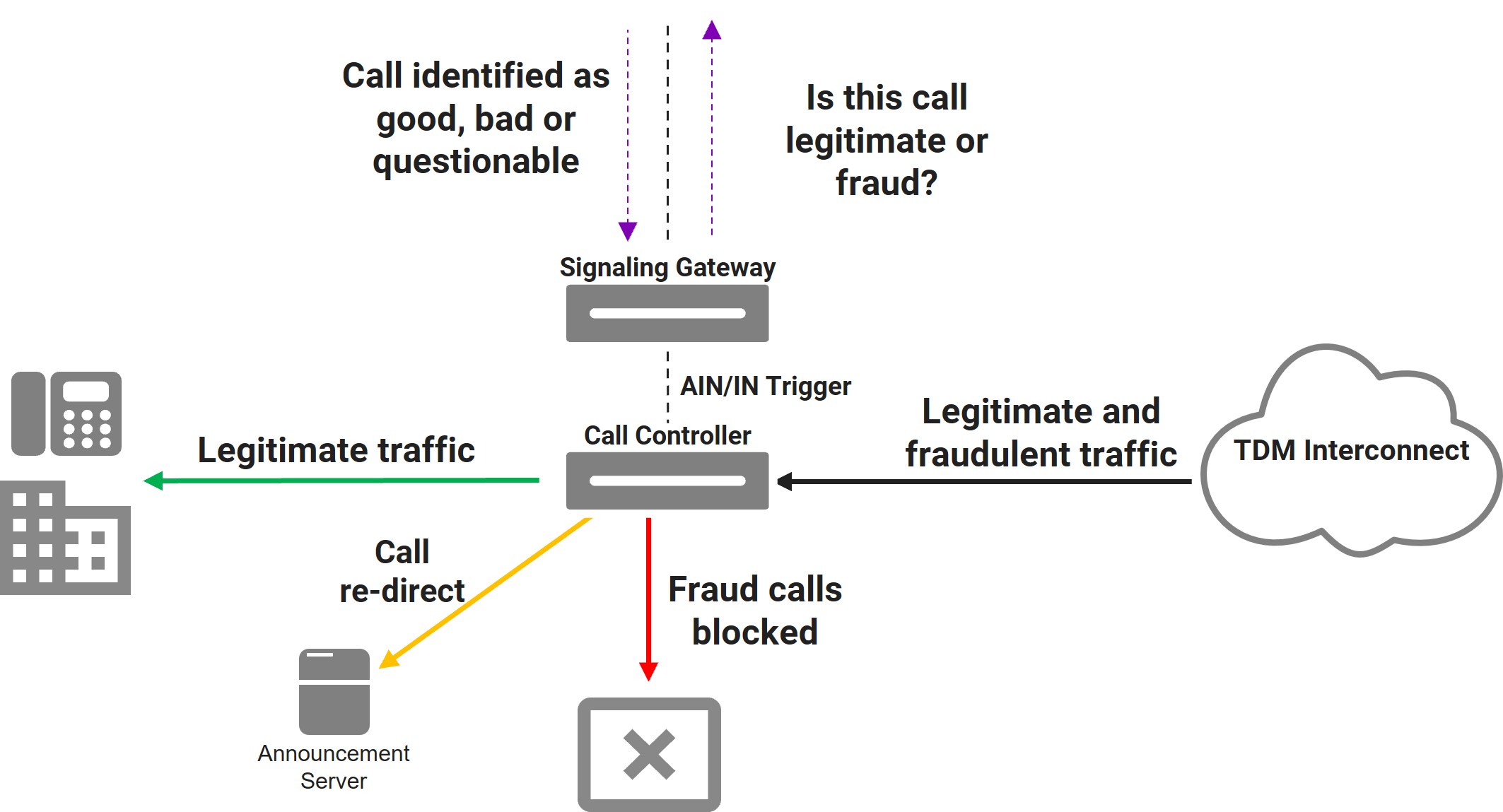Originating Robocall Mitigation – FCC Mandates
In the US, the FCC expects voice service providers to "Know Your Customer" As such, the FCC has made multiple rulings that directly address originating robocall mitigation:
Identity Assurance Explained
Identity Assurance Explained
Ribbon Reputation Scoring - Originating Robocall Mitigation
You can meet the FCC mandate for originating robocall mitigation by subscribing to Ribbon’s cloud-hosted Reputation Scoring service.
For each originating call, in real-time as part of the call routing process, Ribbon’s Reputation Scoring service will be queried to determine the likelihood that the call is legitimate vs. illegitimate. The query may be invoked via SIP signaling or via a REST API.
Reputation Scoring uses machine learning models to analyze each call attempt and provides multi-dimensional reputation scores and guidance for call validation treatment. For example:
- If an originating call is using a spoofed telephone number (TN) that appears on a Do-Not-Originate list or is an unallocated, unused, or invalid number, it will be identified as illegal and should be blocked at the originating switch. These are the easy calls to address
- For bad actors spoofing valid TNs, Reputation Scoring analyzes the call vs. normative traffic patterns. If there is a reasonable likelihood that the call is being made with malicious intent, it will instruct the originating switch to block the call. For all other calls, the originating switch will be instructed to route advance the call, so it proceeds normally to its destination.
Ribbon Reputation Scoring For Originating Robocall Mitigation

Ribbon Originating Robocall Mitigation
Terminating Robocall Mitigation – FCC Guidance
Terminating robocall mitigation is the ability to identify and stop illegal robocalls in the terminating network. In the US, the FCC mandated originating robocall mitigation rather than terminating robocall mitigation, but they did recognize the value and usefulness of terminating robocall mitigation. As such, they provided guidance in several rulings, first in FCC 20-96 (July 16, 2020) and then with clarification in FCC 20-187 (December 29, 2020), where they stated:
- Not block a voice call placed to 911 and not block a voice call from public safety answering points and government emergency numbers
- Provide a single point of contact for receiving call blocking error complaints and verifying the authenticity of the calls
- Resolve caller ID authentication information disputes within a reasonable time and, at minimum, provide a status update within 24 hours
- Stop blocking if a caller makes a credible claim of a call blocking error, or the terminating provider determines that the calls should not have been blocked, or the call delivery decision is not appropriate
- Not impose any charge on callers for reporting, investigating, or resolving complaints made in good faith
- Uses reasonable analytics and caller ID authentication information where available to identify and target calls that are highly likely to be illegal
- Manages the call blocking with human oversight and network monitoring to make sure blocking is working as intended
- Stops blocking calls determined to be likely lawful
- Notifies customers it is engaging in call blocking
- Applies all analytics in a non-discriminatory, competitively neutral manner
- Provides blocking services with no additional line-item charge to consumers
Ribbon Reputation Scoring For Terminating Robocall Mitigation In IP Networks

Ribbon Reputation Scoring For Terminating Robocall Mitigation In TDM Networks



